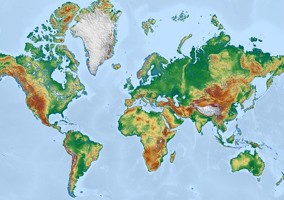The sands beneath our feet keep shifting. Covid-19 has left all of us living in an in-between state: unable to plan, unwilling to commit, uncomfortable about decisive action.
Understandable when you’re dithering about booking a holiday, buying a new car or considering a career change. Not acceptable when you’re trying to save millions of vulnerable people on the brink of death, disease and a life of grinding poverty.
The G7 members describe themselves as a ‘community of values’, but last weekend’s summit only hinted at what those values might be. This is a tragedy because, what started in the 1970s as a fireside chat among national leaders, has, on several occasions, proved to be truly world-changing.
The G7 Summit in 2000 helped launch the Global Fund; in 2005 it drove debt relief for Africa, in 2010 G7 leaders committed billions to reducing maternal, infant and child mortality in low-income countries, and in 2018, they launched the Charlevoix Declaration on Quality Education. This annual gathering remains an important opportunity to address significant international crises. However, whilst on the surface the promises being made seem optimistic, many NGO are left feeling disappointed with the finer details.
Future generations barely referenced
For World Vision, we were particularly surprised to find that there are only two mentions of children in the 25-page communiqué. For the G7 to wave a banner with ‘Build Back Better’ on it is pretty meaningless when the future generations who are supposed to benefit are barely referenced. It’s also suspicious when leaders organise various consultations with women, civil society and youth in advance of the summit, and the final communiqué reflects little of what was discussed.
This summit took place in the context of the biggest global crisis we have faced since WWII—exactly the time when we needed global leaders to meet, to plan and to act for those people most impacted by Covid, conflict and climate change.
And, as any leader knows, before you act, you have to listen deeply to those who are invested in the changes you plan to bring about. That’s what happened in advance of Okinawa, Gleneagles, Charlevoix and Muskoka when, as a result of G7 commitments backed by sufficient funds, millions of lives were saved and improved.
There’s no little irony in the fact that the leading democracies of our world didn’t really listen to the people they sought to help. You don’t, for example, ask civil society to organise its own meeting. You don’t neglect to include under-18s in the Gender Equality Advisory Council for the G7. You don’t make commitments that can’t be met without substantial investment by countries not present at the G7 discussions.
G7 leaders could be champions for the most marginalised and at-risk groups
This can, however, be fixed. The G7 leaders could revisit the input from women, children and civil society in the consultations, and could listen deeply to voices of those living in extreme poverty, to displaced people and refugees, to people living with the scars of violence and conflict.
They could use what they hear to inspire and motivate them to meaningfully include the most vulnerable children and their communities in the policy decisions made at the upcoming G20 meeting. The G7 leaders could be champions for the most marginalised and at-risk groups including women and children.
World Vision believes that our main role going forward is ensuring that government sherpas, ministers, civil servants and leaders hear the voices of those denied peace, security, nutritious food and clean water, good health and education, and their God-given right to flourish. It is why we organised a side event this week in which four young people could be heard by government leaders from the UK and Kenya on the issue of girls’ education.
The famous poem by T. S. Eliot talks about “hollow men” living in the space “between the idea and the reality, between the motion and the act”. Before the G7 country leaders meet in Germany in 2022 they have a chance to turn their ‘hollow’ commitments into properly funded action. They have the chance to come to Germany determined to ensure every child everywhere can live life in all its fullness.
Between now and then (with apologies to the poet) civil society needs to do everything it can to make the communiqué from the German G7 less of a whimper and more of a bang.
Erica Hall is policy manager and strategic advisor, and Marwin Meier is health and legal issues manager at World Vision
Related articles












